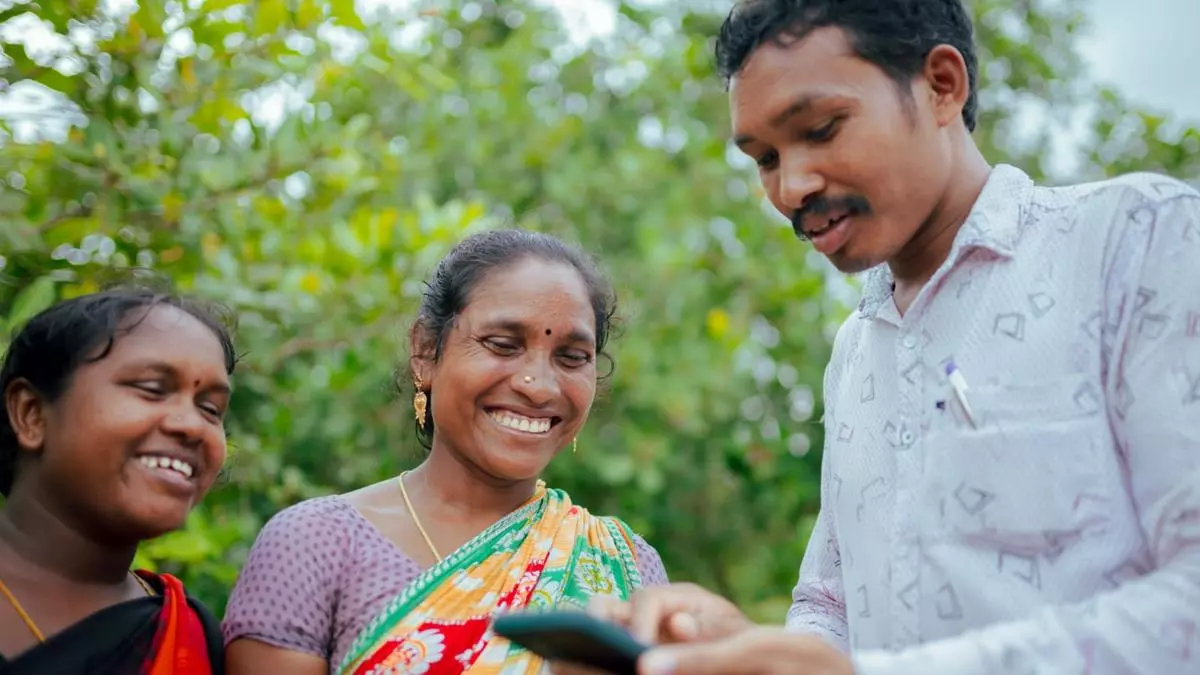Digital Green cuts cost of video-based solutions for agri extension to one-tenth
Global development organisation Digital Green has cut the cost of agricultural extension through video-based solutions from $35 per adoption to $3.5 currently, says Ayushi Singh, its Director, Digitalisation of Agriculture Extension System (DAES).
The organisation was seeded in the Microsoft Research Labs in 2008 as a research project to disseminate targeted agricultural information to small and marginal farmers in India using digital videos.
Digital Green has pioneered, tested and scaled the video-based approach in agriculture extension systems, transforming them into a global mission and movement to uplift smallholder farmers with hundreds of partners around the world.
Voice from farmers
“Basically, it is about a voice to the farmers, but more importantly, a voice from the farmers that would tell the ecosystem how to really make things happen on the ground,” Singh told businessline in an online interaction.
The community-led initiatives are innovative and the applications are cost-effective and of scalable technology, she said. By harnessing video technology for peer-to-peer learning, Digital Green has revolutionised knowledge-sharing among farmers, especially women in remote areas, fostering trust and encouraging modern agricultural practices, said Singh.
Ayushi Singh, iDirector, Digitalisation of Agriculture Extension System (DAES), Digital Green
A feature of this is that the organisation adapted existing videos to disseminate disease awareness and prevention measures via mobile and social media channels to help farmers in connecting with markets during the pandemic lockdown. It also facilitated virtual training for frontline workers through this, she said.
Partnership with NRLM
In India, Digital Green has been partnering with the National Rural Livelihood Mission (NRLM) to showcase the development so that more organisations could adopt it, the organisation’s Director, DAES, said
The unique model of the organisation, founded by Rikin Gandhi, enables the solutions to be more efficient, farmer-focussed through timely, targeted and actionable information.
Digital Green’s focus is on inclusivity and climate resilience while designing solutions for extension agents and farmers to improve their lives and livelihoods, she said.
The organisation has now begun to disseminate information through other digital mediums such as chat and GPT, community video and FarmStack. It collects the feedback on these to ensure better efficiency, the organisation’s Director, DAES, said.
AI-enabled chatbot
“What we have worked (now) on is AI-enabled chatbot, which sort of collates all of the information that exists in the agriculture ecosystem and updated content. It includes weather data, soil data, and market data. We are able to synthesise it with generative AI into local languages,” Singh said.
This can be used by a farmer or extension work on any app such Telegram or Whatsapp on their phone. Headquartered in San Francisco, the organisation, which has its Indian headquarters in New Delhi and technology headquarters in Bengaluru, is active in Bihar, Odisha, Jharkhand, Andhra Pradesh, Telangana, Rajasthan, Madhya Pradesh, and Uttar Pradesh.
Internationally, Digital Green has extended its reach to the African soil with country offices in Ethiopia and Kenya. The organisation is helping six million farmers across the globe with 60 per cent of them benign women.
“That’s (60% women) by default and also intentionally, as a lot of women actually participate in agricultural practices. The cost of adoption has impacted these women. And in a lot of our digital products and experiments, we realised that because this was in the hands of women, we are breaking that boundary of environmental access,” she said.
VISTAAR network member
Women’s participation itself has been a major contributor and this is now being looked upon as a highly respectable job for them. “She (a woman) knows how to create videos, she knows how to communicate the scientific information to the farmers and bring back information from them. So in literal sense, decision-making, because of these processes, has become stronger in the hands of the women and their representatives,” said Singh.
Digital Green’s impactful work has attracted diverse funding sources, including a significant $15 million grant received in June 2021. This funding has fueled the organisation’s growth and expansion. “We depend more on philanthropy,” she said.
The organisation is a member of VISTAAR Network – an open, interoperable, and federated public network dedicated to agricultural information and advisory services – and plans to drive inclusive and farmer-centric solutions, empowering farmers to adopt climate-smart practices, the company’s Director, DAES said.
Digital Green is working with a lot of farmer collective organisations and has begun to collect data from them. These collectives such as the farmers producers organisations will get advisory support, while agri startups can plug in to support them.
“We are trying to play a part in a large ecosystem of using data so that farmers can be provided what they actually need,” said Singh.
